Let's fix the UN, before it is too late

There is an old adage in the West: "If it ain't broke, don't fix it." This seems to apply well to the current UN system. It is not broken but it is also not fully functional. And its inadequacies are quite pronounced.
So far, the UN system has served the interests of the global community, recognised the sovereignty of nation-states, maintained the hegemonic balance of powers, and contributed favourably to global economic growth. Most nations have benefited from it, and the organisation has consistently received favourable ratings in Pew Research polls.
Despite this, since the UN's inception, the world has lost at least 10.5 million people due to war, 110 million people have been displaced, and 35.3 million are living as refugees. Half of these numbers could be attributed to superpower-led conflicts. A $3 billion budget from the UN for peacekeeping efforts is a poor match for the global military spending of $2.1 trillion.
The moral purpose of the UN is defeated when the superpowers, as sponsors and guardians of the system, directly get involved in the conflicts. Proxy wars hurt the sustainability of the organisation.
The UN system demonstrates serious inadequacies. The war in Ukraine, with no end in sight, is another example of its failures. The UN has fallen behind in terms of inclusivity, participation, and power-sharing. Its hegemonic arrangement, with veto powers of a few, is not compatible with the current economic and political reality. For instance, both Germany and Japan exert more economic power than France and the UK. Brazil, India, Indonesia, South Africa, and Turkiye can contest the superpowers in terms of GDP and population. As a whole, the emerging nations exhibit more economic power than before. And the model needs to be adapted accordingly.
The representation in the Security Council (SC) also exhibits limitations. It has not been able to accommodate the racial, ethnic, linguistic, and religious representation of the world population. For example, four of the five superpowers are White-majority countries. Religious representation in the SC is similarly lacking and the institution does not feature many of the major ethno-linguistic population groups of the world.
The veto power of the SC has been one of the most contentious topics. Opinions to expand its membership, curtail its power, establish a points system, or eliminate it altogether have been expressed. No serious change has taken place, and it remains a superpower club dominated by the West.
The IMF quota system and voting rights give more importance to richer nations. The currency pegging and exchange rate system also favour them in trade and financial transactions. The French CFA arrangement (Communauté Financière d'Afrique or Financial Community of Africa) still binds many African nations to a colonial past.
The dollar is the core of the monetary culture that governs our world. The United States has been able to retain its economic leadership because of the dollar. The monopoly or the economics of the US dollar will not change unless the world is able to embrace a newer political governance structure.
In terms of trade negotiations, we have not been able to conclude the Doha Round that started in 2001. While the pluralistic nature of governance at the World Trade Organization (WTO) is praiseworthy, we need more tangible outcomes. In terms of trade, the UN system still maintains a core-periphery relationship and favours the richer nations.
The UN could not stop the war in Vietnam. It could do little during the two Afghan wars, the wars in Chechnya and Georgia, the wars in the Gulf, Iraq, Syria, Libya, and Yemen, and during most proxy wars. So far, it has been helpless in Ukraine.
The moral purpose of the UN is defeated when the superpowers, as sponsors and guardians of the system, directly get involved in the conflicts. Proxy wars hurt the sustainability of the organisation.
These issues have been broadly discussed in various global fora. Both superpowers and member nations are aware of them. Evidently, the inadequacies are weakening the global system. In such a situation, how can we attain peace?
The superpowers – France, UK, US, and the elitist G7 – are the main sponsors and the primary beneficiaries of the current UN system. The G7 has the political, economic, and military support of the European Union and Nato. The status quo serves the unipolar agenda of the group. As long as it is not broken, they may not feel any urgency for change. But so far, officially, they have not said no to reform.
During the Cold War, the non-aligned movement was a robust Southern bloc. The leaders of the South were strongly opposed to nuclear proliferation. Their contribution during the Korean War, Cuban Missile Crisis, and in global peace is notable. With the fall of the Soviet Union and no detente, the movement has lost its impetus. We are missing both the platform and those leaders who had global visions.
Lately, the BRICS has advanced a new multilateral geopolitical architecture for global cooperation. The organisation's quick success is admirable. It is seemingly aiming to counter Western dominance in global governance. Its southern expansion to Argentina, Egypt, Ethiopia, Iran, Saudi Arabia, and the UAE in 2024, announced at the 2023 BRICS Summit in August, is notable. It is possible that we will see a new name, revised vision, and revised agenda of the BRICS. But, as of now, reforming the UN is not an agenda item of this group. Currently, internal disagreements within the member countries are substantive, which can hinder their progress. China and India have disputes as India is part of the Quad, a perceived anti-China group. The Western efforts to ostracise Russia and contain China will continue to test their bond. Expansion is likely to prompt more challenges.
The BRICS' identity is a fundamental issue. It is neither a trade bloc (such as the European Union), nor a military alliance (as is Nato). In order to keep its momentum, the group will have to show some tangible success. Floating an alternative to the dollar or instituting a SWIFT-like transaction system could result in a moral boost. It can be a respectable force in reforming the UN and perpetuating better global governance in the long run.
The UN is nearly 78 years old. The world has undergone meaningful political, economic, and technological transformations over these years. China, Russia, and the emerging nations are critical components of the global system. They exert substantive economic power. Technology and globalisation have brought the world much closer together.
Under the current circumstances, a unipolar strategy from the West is not tenable. Ostracisation of Russia or containment of China are not pragmatic policies, as far as global governance is concerned. A disintegration or defeat of Russia is not in the best interest of the global community and providing an opportunity to unleash nuclear arsenal is certainly a bad idea. Lest we forget, the strangulation of Germany led to World War II.
What the world needs is an honest and open consensus for reform. Superpowers, emerging nations, and the Global South must agree to a reform that would save the UN from underperforming or breaking apart. The ideology of "if it ain't broke, don't fix it" could put the UN in the same trap as the League of Nations. A breakdown could result in World War III.
A pragmatic approach to reforming the UN should encompass the following: 1) acknowledging the power of the hegemons; 2) resuming nuclear disarmament talks; 3) establishing a representative multipolar world; 4) instituting a fair financial and trading system; 5) pursuing sustainable development; and 6) offering long-term peace.
Let us fix the UN together, before it is too late.
Dr Abu NM Waheeduzzaman is a professor of Marketing and International Business at Texas A&M University-Corpus Christi.
Views expressed in this article are the author's own.
Follow The Daily Star Opinion on Facebook for the latest opinions, commentaries and analyses by experts and professionals. To contribute your article or letter to The Daily Star Opinion, see our guidelines for submission.
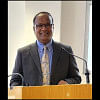
 For all latest news, follow The Daily Star's Google News channel.
For all latest news, follow The Daily Star's Google News channel. 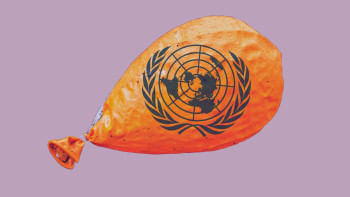
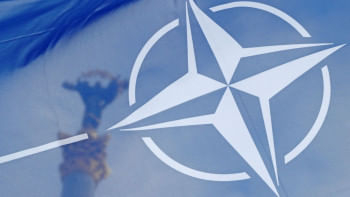


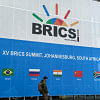


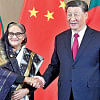



Comments